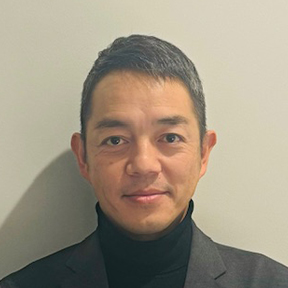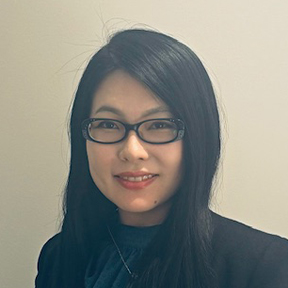2024.05.16

Gaining popularity thanks to the Casual Brain Check app, which assesses cognitive function, and
the diet management support provided by Ajinomoto through the MY Hoken app!
Why Meiji Yasuda
is taking on the challenge of developing these apps

Casual Brain Check based on three years of research involving medical specialists
The number of elderly people suffering dementia in Japan is predicted to reach around seven
million, or one-fifth of the total elderly population, by 2025, making it urgently necessary
to implement measures for the early detection and prevention of the disease. One such
measure was the introduction in December 2023 of a new therapeutic drug for mild cognitive
impairment (MCI) and mild dementia called lecanemab, which is covered by health insurance.
It is said that if the disease is detected at the MCI stage, it may be possible to prevent
further progression or even effect a cure.
Meiji Yasuda Life Insurance Company (“Meiji Yasuda”) has been implementing the Wellness for
All Project to meet the social challenge of extending healthy life expectancy. As part of
this effort, the company started to provide policyholders of its “Dementia Care” and
“Dementia Insurance for Your Future” life insurance products with the Casual Brain Check app
in February 2020. Policyholders can use the app to check for any reduction of their
cognitive function. The company obtained a patent for the app in October 2023.
The Casual Brain Check app asks users six questions. The user responds to the questions by
performing a task, such as learning words by heart or tracing a line. The app then evaluates
the user’s cognitive level on a three-point scale. The app is highly rated by users for its
ease of use and game-like format.
Chie Nagasaki from the Service Development Group at the Customer and Healthcare Service
Development Department was engaged in the planning and development of the app. “We conducted
research for three years from fiscal 2017 to develop the Casual Brain Check app,” she
explains. “Thanks to the cooperation of a total of 150 people, including people who both
were and were not diagnosed with dementia or MCI, we were able to verify the precision of
the app’s evaluation through testing. The app evaluates the cognitive abilities of the user
not only based on the rate of correct answers but also on the amount of time they take to
give their answers. Because of its ability to evaluate cognitive function by asking just six
questions, whereas psychiatrists usually take a more multifaceted approach, the app was
introduced in a presentation made at the Alzheimer’s Association International Conference
2019.”

Ms. Nagasaki has a long background in sales. She drew on that experience in the development of the app, making sure she heard directly from sales personnel after its release in order to reflect their feedback in future updates.
Carefully devising measures to help users improve their health through the healthy recipe proposal program provided by Ajinomoto Co., Inc.
Meiji Yasuda has been making the MY Hoken app available to the general public as well
its
own policyholders to support users in maintaining their health since 2021. The app lets
users record and graph the number of steps they take each day for “step count management,”
measure the condition of their sleep by simply setting an alarm before bed for “sleep
management,” and measure their body size and posture by taking selfies with their
smartphones for “body shape management.”
In November 2023, the company added diet management to the app by including a healthy recipe
proposal function provided by Ajinomoto. Users first input information about their age, body
shape and others as well as their health concerns, including if they need to reduce their
intake of salt, sugar, fat or calories. They then choose the foods and ingredients they want
to eat and the program uses that information to propose suitable main and side dishes from a
database of around 10,000 recipes.
Saori Yoneda, chief staff member of the Customer and Healthcare Service Development
Department’s, has been participating in the planning and development of the MY Hoken
healthcare app since Meiji Yasuda first launched the initiative. To design the app’s user
interface (UI) she even took design classes at an art college on the side.

“When we started to develop the MY Hoken app, Meiji Yasuda had almost zero app
development
know-how and almost no healthcare expertise,” she recalls. “We therefore cooperated with a
range of companies as we tried to figure out how to develop the app. The healthy recipe
proposal program provided by Ajinomoto is one example of such cooperation: we linked the
program with our MY Hoken app by using an API developed by another company to provide
better
services to users. In the development process, however, we found that it took a long time
for the system to offer its suggestions, which was a problem. We tried to shorten the time
but it was technologically difficult. We didn’t want users to think there was something
wrong with the app, so we tried to come up with something else. In the end, we decided to
display animated images of our mascot character, Usarin, shaking a frypan as well as a
random pop-up featuring cooking-related text. We were thus able to solve a technological
problem with creative thinking, which is something I learned from.”
Users of the recipe proposal program give it a high rating. Comments include: “It suggests a
combination of a main and side dish as well as a soup, rather than just single dishes,
making it easy for me to calculate the total calories and total salt content of the meal”
and “I can get a recipe to use the ingredients I’ve already got at home.”
Seeking to use health-related app data to provide better services
Yasunobu Ota is supervising app development as the group manager of the Service Development
Group. “Under the Wellness for All Project, we are taking advantage of the company’s strong
sales team,” he says. “We have developed and provided the apps, and the sales personnel are
now supporting customers in using them, which gives us our biggest advantage.”
As Ms. Nagasaki explains, he’s referring to the fact that the apps, which are rated highly
by salespeople, can also be used as a communication tool.
“The Casual Brain Check app can also be used to share information with policyholders,” she
says. “The salespeople use this app together with policyholders when they check the details
of their policies, which they do on a regular basis. So it gives them an opportunity to
raise the awareness of the policyholders about the importance of implementing preventive
measures against dementia.”
Going forward, they are eager to look into developing a new app able to capitalize on the
insurance company’s strengths.
“As a result of customers using the apps, we can accumulate a lot of health-related data,”
says Mr. Ota. “We are thinking about how to use this data to provide customers with even
more useful advice and services to support their health.”
Concludes Ms. Yoneda: “One of our advantages as an insurance company is that we can analyze
information about what illnesses are affecting our policyholders over a very long period of
time. By combining the data that we have accumulated through our insurance services with the
day-to-day health data we’re getting through the apps, I think we can build a model that
would elude companies in other industries.”
While continuing to provide life insurance products, the company is also embracing
challenges in new fields, which it signaled by changing its brand name from “Meiji Yasuda
Life” to “Meiji Yasuda” in January 2024 to reflect its commitment to contribute to extending
healthy life expectancy and regional revitalization.
The MY Hoken app can also be used by non-policyholders.
Download it now to try the diet management function!
Click below to download the app!
INTERVIEWEE

YASUNOBU OTA
Group manager, Customer and Healthcare Service Development Department

SAORI YONEDA
Chief staff member, Customer and Healthcare Service Development Department

CHIE NAGASAKI
Staff member, Service Development Group, Customer and Healthcare Service Development Department
Meiji Yasuda Life Insurance Company
1-1, Marunouchi 2-chome, Chiyoda-ku, Tokyo
Since its founding in 1881, the company has supported customers and local communities as a pioneer of the life insurance business based on a spirit of mutual aid. It contributes to the realization of a sustainable and hopeful society by championing the development of local communities and expanding the scope of mutual aid.
